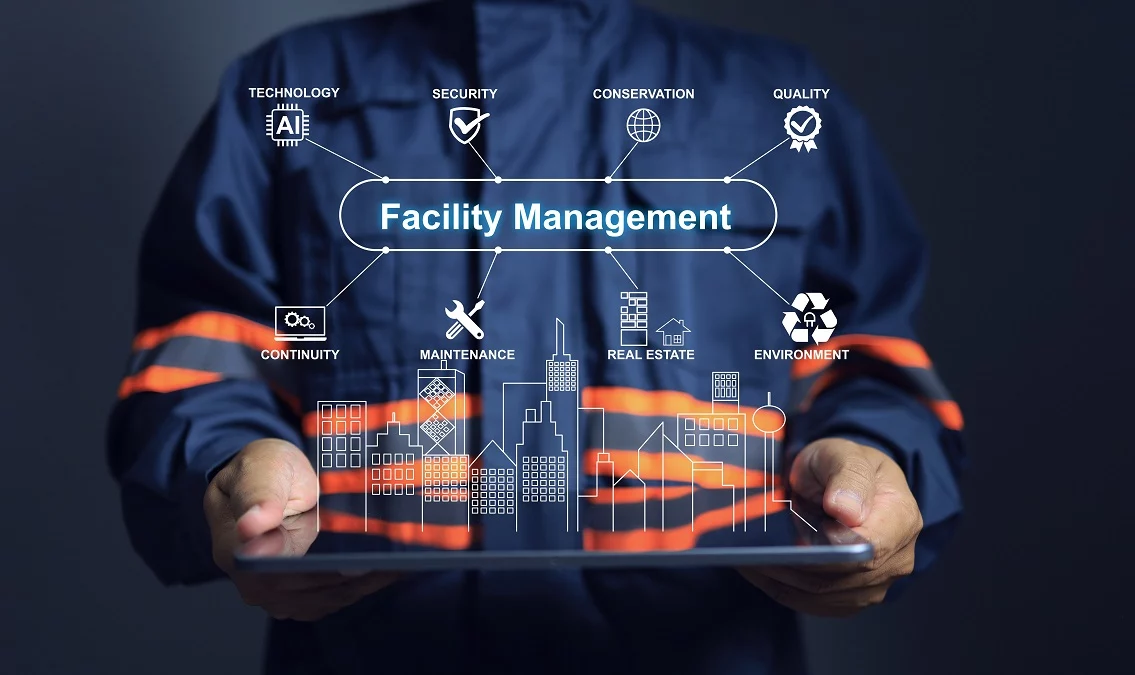Why Total Facility Management Is Essential for Service Success
Total Facility Management (TFM) works as a foundation for business success by integrating diverse functional elements such as upkeep, area utilization, and safety and security steps. This assimilation not only boosts effectiveness yet likewise straightens facility management with overarching organizational goals. As businesses browse a competitive landscape, comprehending the complex benefits of TFM can be crucial in driving cost performance and improving worker performance. The implications of embracing TFM expand much beyond instant functional gains, elevating crucial concerns concerning its lasting impact on organizational durability and competition. What exists beneath this vital structure?
Understanding Total Facility Management
Total Facility Management (TFM) includes an extensive technique to handling a company's buildings and connected services to guarantee optimal performance, safety and security, and performance. TFM incorporates different self-controls, including maintenance, operations, room management, and security procedures, to produce a cohesive structure that sustains a company's core goals.
At its core, TFM aims to streamline the procedures entailed in facility management, reducing redundancies and boosting service delivery. This strategy includes the sychronisation of activities connected to property management, such as repair services, cleaning, and power management, to cultivate a productive setting for stakeholders and staff members alike. TFM likewise emphasizes the value of applying ideal methods and innovative modern technologies to enhance solution high quality and decrease functional costs.
Recognizing TFM needs recognition of its calculated importance in sustaining an organization's goal. By aligning facility management tasks with organizational goals, TFM boosts general efficiency while making sure conformity with health and wellness, safety and security, and environmental laws. Thus, TFM offers not only as a logistical function yet likewise as a critical asset, adding to an organization's long-lasting sustainability and development. In summary, TFM is necessary for creating a well-functioning atmosphere for business success.
Key Benefits of TFM
Leveraging an extensive technique, companies that apply Total Facility Management (TFM) unlock a myriad of benefits that contribute to general company success. Among the key benefits of TFM is the improvement of functional performance. By settling facility solutions under a unified management framework, companies can simplify procedures, reduce redundancies, and improve communication across divisions.
Moreover, TFM advertises an aggressive upkeep approach, which decreases downtime and expands the life-span of facilitiess and tools (Total Facility Management). This aggressive technique not just boosts efficiency however likewise promotes a safer working environment, ultimately leading to greater staff member satisfaction and retention prices
In addition, TFM assists in much better resource allocation by providing understandings right into facility performance metrics. Organizations can recognize areas for improvement, allowing them to make enlightened choices that align with their tactical goals.
TFM and Price Effectiveness
Achieving price effectiveness is an essential goal for companies, and Total Facility Management (TFM) plays a pivotal duty in this venture - Total Facility Management. By integrating numerous facility solutions under a single management framework, TFM enables companies to improve procedures and minimize redundancies. This holistic strategy causes significant price savings, as it gets rid of the need for multiple vendors and simplifies purchase procedures
Additionally, TFM cultivates aggressive maintenance methods, which minimize the risk of pricey fixings and downtime. By prioritizing preventative steps, companies can extend the life expectancy of their assets and minimize unanticipated expenditures. In addition, TFM incorporates energy management practices, which can drastically cut energy costs with reliable resource usage.
The centralization of information and analytics within TFM allows organizations to make educated economic decisions. By determining fads and locations for improvement, TFM allows customized approaches that even more improve price management. Furthermore, the scalability of TFM services makes certain that as companies grow, their facility management practices stay effective and straightened with economic goals.
Enhancing Employee Productivity
A well-managed facility can considerably increase worker efficiency by producing a favorable work atmosphere. Efficient Total Facility Management (TFM) ensures that all aspects of the workplace-- from lighting and temperature level to sanitation and safety and security-- are maximized. When staff members run in a room that is well-maintained and comfortable, they are most likely to concentrate on their jobs, leading to higher output and work satisfaction.
In addition, TFM can boost partnership with the tactical design of public locations, motivating teamwork and technology. By purchasing the ideal resources and technology, companies can assist in seamless interaction and enhance process, further boosting efficiency. Regular upkeep and timely responses to facility problems prevent disturbances that might or else impede performance.
In addition, a healthy and risk-free work setting, supported by TFM techniques, minimizes absenteeism and advertises well-being, straight correlating with boosted productivity degrees. Ultimately, focusing on facility management is an investment not only in physical properties however additionally in the workforce itself. By cultivating an atmosphere that sustains employee demands and preferences, services can grow a much more involved and efficient workforce, driving total success and competitive benefit.

Future Trends in TFM
Embracing technological improvements is set to reshape the landscape of Total Facility Management (TFM) in the coming years. As the demand for efficiency and sustainability increases, TFM will progressively embrace smart structure technologies, integrating Web of Points (IoT) gadgets to keep track of and handle facility procedures in real-time. This change will certainly make it possible for proactive maintenance, substantially reducing operational prices and improving service delivery.

Sustainability remains an important focus, with TFM experts expected to focus on eco-friendly techniques. This consists of using renewable resource resources and enhancing waste management systems to decrease the carbon impact of facilitiess.
Remote management capabilities will certainly likewise be broadened, allowing facility supervisors to supervise operations from practically anywhere. This flexibility will end up being crucial as companies adjust to hybrid job designs. In summary, the future of TFM is poised for makeover with modern technology, sustainability, and improved operational approaches, making certain services stay competitive in an evolving landscape.
Verdict
By incorporating numerous operational features, TFM improves performance and straightens facility management with organizational purposes. As businesses significantly adopt lasting methods and ingenious modern technologies, the importance of TFM will continue to grow, guaranteeing lasting operational performance and competitiveness in a developing marketplace.

Comments on “Top Reasons to Invest Total Facility Management for Your Commercial Property”